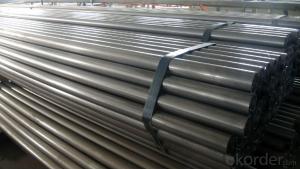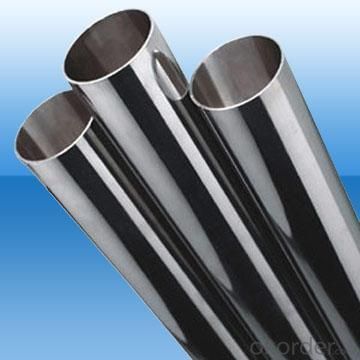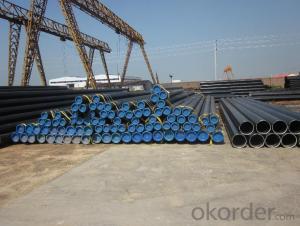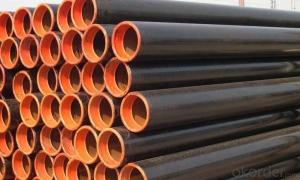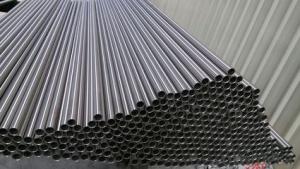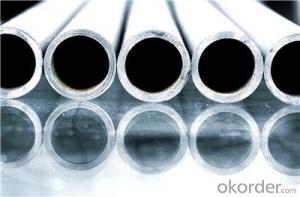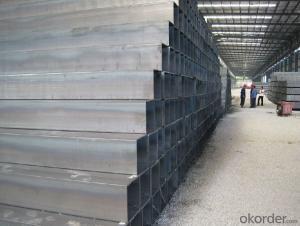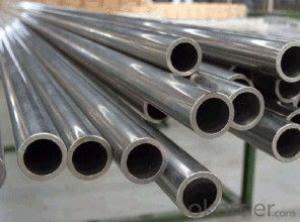API Carbon Steel Seamless Pipe with High Quality
- Loading Port:
- Tianjin
- Payment Terms:
- TT OR LC
- Min Order Qty:
- 35 m.t
- Supply Capability:
- 5000 m.t/month
OKorder Service Pledge
OKorder Financial Service
You Might Also Like
Specification
Structure :
Seamless pipe is formed by drawing a solid billet over a piercing rod to create the hollow shell. As the manufacturing process does not include any welding, seamless pipes are perceived to be stronger and more reliable. Historically seamless pipe was regarded as withstanding pressure better than other types, and was often more easily available than welded pipe.
Specification:
1) Material:20#(ASTM A 106/A53 GRB.API5LGRB,GB),45#,16Mn,10#.
2) Specification range:OD:21.3-610mm,WT:6-70mm,length:6-12m or according to the requirement of clients.
3) Excutive standards:GB,ASME API5L.ASTM A 106/A53,Despite of the above standards,we can also supply seamless steel pipe with standard of DIN,JIS,and so on,and also develop new products according to the requirements of our clients!
4) Surface:black lacquered,varnish coating or galvanized.
5) Ends:Beveled or square cut,plastic capped,painted.
6) Packing:bundles wrapped with strong steel strip,seaworthy packing.
FAQ :
A. How is the quality of your products?
Our products are manufactured strictly according to national and internaional standard, and we take a test on every pipe before delivered out. If you want see our quality certifications and all kinds of testing report, please just ask us for it.
Guaranteed: If products’ quality don’t accord to discription as we give or the promise before you place order, we promise 100% refund.
B. How about price?
Yes, we are factory and be able to give you lowest price below market one, and we have a policy that “ for saving time and absolutely honest business attitude, we quote as lowest as possible for any customer, and discount can be given according to quantity”,if you like bargain and factory price is not low enough as you think, just don’t waste your time.Please trust the quotation we would give you, it is professional one.
C.Why should you chose us?
Chose happens because of quality, then price, We can give you both.Additionally, we can also offer professional products inquiry, products knowledge train(for agents), smooth goods delivery, exellent customer solution proposals.Our service formula: good quality+good price+good service=customer’s trust
SGS test is available, customer inspection before shipping is welcome, third party inspection is no problem.
Any question, pls feel free to contact us !
Product image:
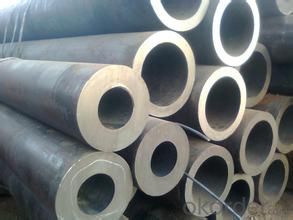
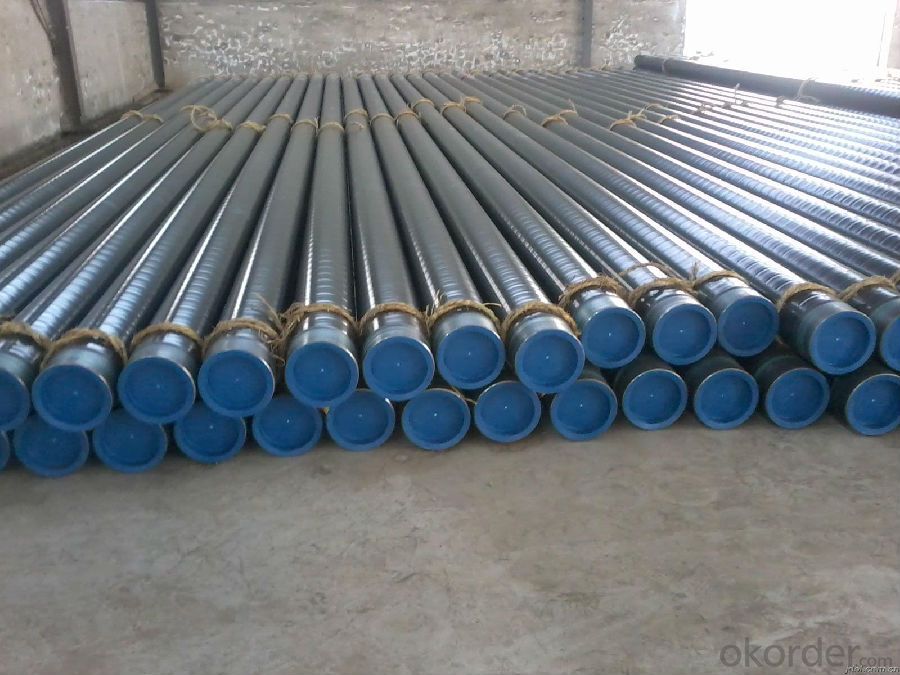
Company Information:
CNBM International Corporation (CNBM International) is the most important trading platform of CNBM Group Corporation, a state-owned company under the direct supervision of State-owned Assets Supervision and Administration Commission of the State Council.
Since 2004, the trading volume of CNBM International has been doubled in 5 successive years owing to the support of superior corporations and effort of all staff. Meanwhile, we have established strategic partnerships with hundreds of domestic manufacturers and sound business relations with clients from over 120 countries. Currently, we have wholly-owned overseas subsidiaries and branches in 5 countries with a view to realize localization, which also represents an essential progress in our globalization target.
In line with the business, CNBM International launched E-business platform Okorder.com.Our goal is to transform CNBM International into the global leading brand in building materials industry within 3 to 5 years through innovation and reform, by strengthening the overall management of supply chain, developing and cultivating both domestic and overseas market, improving the procedure and information system, enhancing the ability to organize resources and to provide value-added services under a professional team and a learning organization.
- Q: How can the immersed pipe pile put steel cage into the steel pipe? Which expert to answer?
- Pile: refers to the use of hammer piling method and pile vibration method, steel casing with valve type pile tip or precast reinforced concrete pile boots into the soil, then pouring concrete (or first in the tube into the cage), while hammering or vibration of a pile side pull tube. The former is called hammer sinking pipe cast-in-place pile, and the latter is called vibrating sinking pipe cast-in-place pile.
- Q: Can steel pipes be used for underground sewer systems?
- Yes, steel pipes can be used for underground sewer systems. They are commonly used due to their strength, durability, and resistance to corrosion, making them suitable for handling wastewater and underground installation.
- Q: What are the different types of steel pipe coatings for marine applications?
- There are several types of steel pipe coatings commonly used for marine applications, including epoxy coatings, polyurethane coatings, and fusion bonded epoxy (FBE) coatings. These coatings are designed to protect the steel pipe from corrosion and provide resistance to marine environments. Epoxy coatings are known for their excellent adhesion and chemical resistance, while polyurethane coatings offer enhanced abrasion resistance. FBE coatings are highly durable and provide excellent corrosion protection. The choice of coating depends on the specific requirements of the marine application and the level of protection needed.
- Q: What are the common problems or issues faced with steel pipes?
- Some common problems or issues faced with steel pipes include corrosion, leaks, blockages, and wear and tear. Corrosion can occur due to exposure to moisture or chemicals, leading to rust and weakening of the pipe. Leaks can arise from faulty connections or cracks in the pipe, resulting in water or gas leakage. Blockages can occur due to the accumulation of debris or mineral deposits, hindering the flow of fluids. Over time, steel pipes can also experience wear and tear, leading to erosion or cracks, which may require repair or replacement.
- Q: What are the different types of joints used to connect steel pipes?
- There are several types of joints commonly used to connect steel pipes, including threaded joints, flanged joints, welded joints, and mechanical joints. Each type of joint has its own advantages and is chosen based on factors such as the application, pipe size, and pressure requirements.
- Q: How do you protect steel pipes from fire?
- There are several measures available to protect steel pipes from fire. One commonly used approach involves applying fire-resistant coatings or paints to the surface of the pipes. These coatings or paints are specifically designed to endure high temperatures and create a barrier that prevents heat from reaching the steel. Another effective method is to wrap the steel pipes with fire-resistant insulation materials. These materials serve as a buffer, reducing heat transfer and slowing down the spread of fire. Mineral wool or ceramic fiber blankets are commonly utilized for this purpose. It is also crucial to ensure proper installation and support for the steel pipes. This includes maintaining adequate clearance from other flammable substances and avoiding overcrowding or obstructions that could hinder the flow of air around the pipes. Sufficient spacing between pipes is also essential to prevent heat transfer between them. Moreover, incorporating firestop systems is recommended when steel pipes pass through fire-rated walls or floors. These systems consist of fire-resistant materials and seals that prevent the spread of fire and smoke through openings or penetrations in fire-rated barriers. Regular maintenance and inspections are essential to uphold the ongoing effectiveness of the fire protection measures. Any damage or deterioration of the coatings, insulation, or firestop systems should be promptly addressed to maintain the fire resistance of the steel pipes. In conclusion, a combination of fire-resistant coatings, insulation, proper installation, and maintenance practices is imperative for safeguarding steel pipes against fire hazards. These measures play a crucial role in minimizing the risk of fire-related damage and ensuring the safety of both the pipes and the surrounding environment.
- Q: What are the factors affecting the durability of steel pipes?
- There are several factors that can affect the durability of steel pipes, including the quality of the steel used, the manufacturing process, the environment in which the pipes are installed, and the maintenance and care given to the pipes.
- Q: Welded and seamless steel pipe how to distinguish?
- Generally, careful observation, can see traces of the weld seam pipe, further is the determination of the polished incision, and then with the file can be seen there is no clear cut, interface traces with the file cleanup to remove when cutting was pasted interface.
- Q: Can steel pipes be used for heat transfer applications?
- Yes, steel pipes can be used for heat transfer applications. Steel is a good conductor of heat, making it suitable for transferring heat from one place to another. Steel pipes are often used in various heat transfer systems, such as in heating, ventilation, and air conditioning (HVAC) systems, as well as in industrial applications where heat needs to be transported efficiently.
- Q: How are steel pipes protected against rust?
- Steel pipes are protected against rust through various methods such as galvanization, epoxy coating, and using corrosion-resistant alloys.
Send your message to us
API Carbon Steel Seamless Pipe with High Quality
- Loading Port:
- Tianjin
- Payment Terms:
- TT OR LC
- Min Order Qty:
- 35 m.t
- Supply Capability:
- 5000 m.t/month
OKorder Service Pledge
OKorder Financial Service
Similar products
Hot products
Hot Searches
Related keywords
